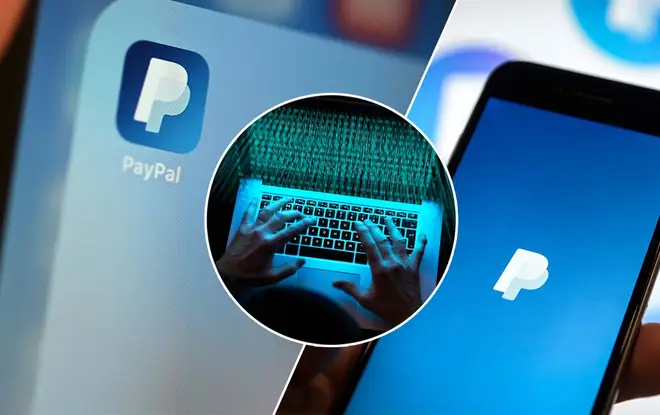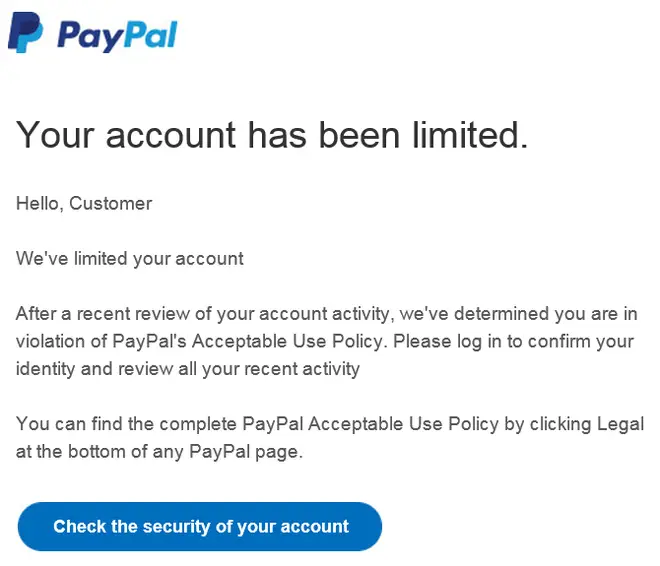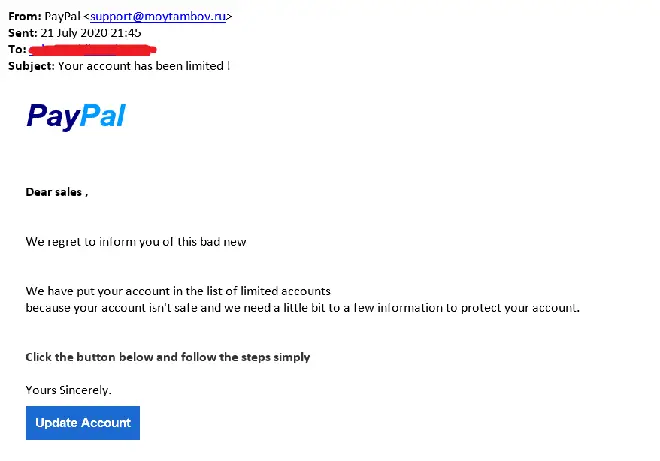Police warn PayPal users of email scam that targets thousands of Brits
31 July 2020, 16:25

The sophisticated email hacking scam can catch a lot of people out.
The British public are being warned by Action Fraud about a dangerous email scam that claims to be from PayPal.
The UK's national reporting centre for fraud received well over a thousand different reports from unsuspecting people receiving the phishing emails in a 24 hour period.

The sophisticated phishing email tries to convince the recipients that their PayPal account has been "limited due to a policy violation" and asks them to click a link to "update their account".
This link then goes through to a convincing website that looks exactly like the real PayPal site - but it isn't.
It's been designed by the scammers so that people will log in and give them full access to accounts and personal details, including your bank details and identity information.

A PayPal spokesperson said: “At PayPal we go to great lengths to protect our customers in the UK, but there are still a few simple precautions we should all take to avoid falling victim to scams.
“Be aware of any emails or text messages that ask you to provide personal information directly in response.
"Scammers often use a false sense of urgency to prompt you to act on a phishing email.
"All communications from PayPal to account holders would be sent to the secure message centre within their PayPal account.
"You will have a secure message waiting if PayPal does need you to take any action.

“A genuine PayPal email will only ever address you by your full name – anything that starts differently should immediately raise your suspicions.
"Look out for spelling mistakes, which are a common tell-tale sign of a fraudulent message.
"If you have any concerns regarding an email you have received, you should send it to spoof@paypal.com.”
If you do receive a suspicious email, don't click any links and don't give away your personal information and it is also advisable to have security software downloaded on your devices.






















